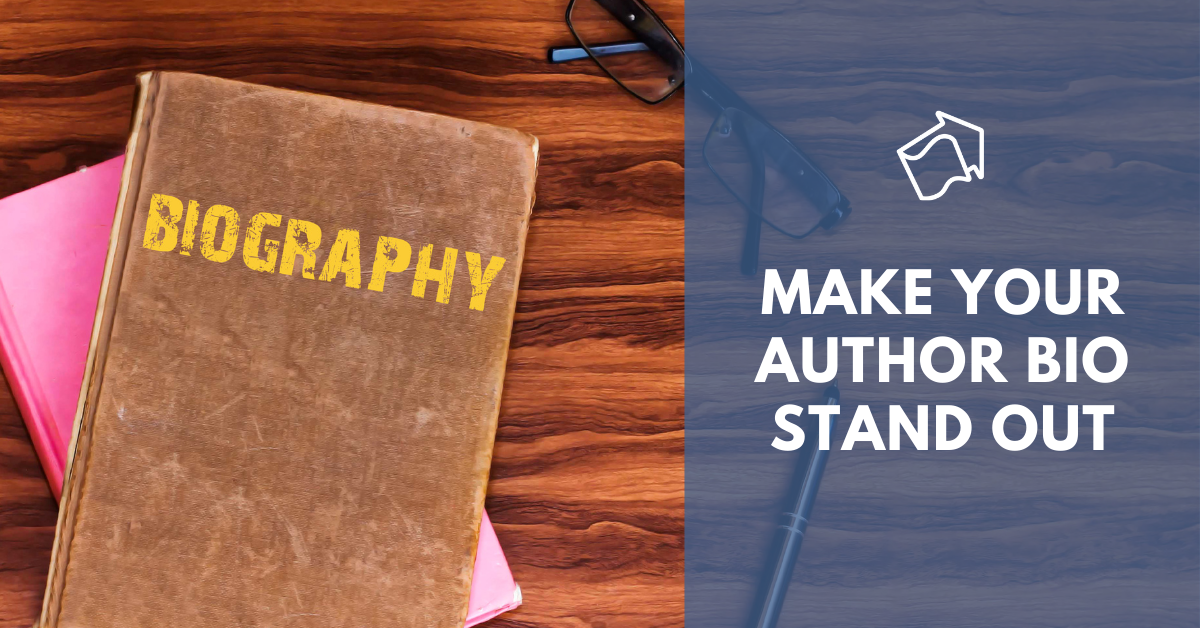
Nothing can strike fear into an author’s heart quite like the author bio. Sure, you may have just finished off the final touches of the next great American novel. But the task of condensing an entire career into a couple short paragraphs is a lot trickier than it may seem. Plus in today’s age of digital media, your author bio may follow you from one corner of the internet to another for years. You’ve suddenly got quite a potential challenge on your hands. Luckily, you can follow a few tips to ensure that your author’s bio is positioned to paint as complete (and efficient) a portrait of you as possible for years to come.
Don’t date yourself!
To be clear, I’m not talking about ’80s references here. One of the biggest mistakes authors tend to make when writing an author bio is churning out long lists of previous publications, awards, and “forthcoming” works. This makes a lot of sense in a professional CV, but not so much in an author’s bio. Anticipate that any bio you’re going to write will be repopulated around the web for the rest of time. It’s not going to look fresh in 2020 if you’re talking about that “forthcoming” Writer’s Digest piece from fall 2007.
Rather than getting too specific, it’s best to simply list publications and awards in the past tense with as few specific dates as possible and only where they make the most sense. See, for example, Books Forward author Tori Eldridge:
Tori Eldridge is the Anthony and Lefty Awards-nominated author of The Ninja Daughter, which was named one of the “Best Mystery Books of the Year” by The South Florida Sun Sentinel and awarded 2019 Thriller Book of the Year by Authors on the Air Global Radio Network. Her short stories appear in several anthologies, and her screenplay ‘The Gift’ earned a semifinalist spot in the prestigious Academy Nicholl Fellowship.
This paragraph tells us a lot about Tori. We know that she’s published in several anthologies and been nominated for several awards, but we don’t need to know all of the specifics. Only in one case is the date necessary — the 2019 Thriller Books of the Year award — and it’s used here to maximum effect. If you can help from bogging your reader down with specifics, the achievements you do choose to highlight become a lot more interesting!
Slipping in the goods
We’re all interesting people, and we all have exciting things to share about ourselves. But for authors, it’s crucial that your author bio only shares information that’s most pertinent to your brand and the kind of promotion you’re trying to do. For instance, if your book is about running an effective workplace, you might not want to fill your author bio with information about how much you love raising ferrets or decorative pinecone collecting.
The information listed in your author bio is likely to come up repeatedly in author interviews and media coverage, so it’s best to include information that you’re comfortable talking about that will help drive interest to your book.
Here again, we can look to author Tori Eldridge for a good example:
Before writing, Tori performed as an actress, singer, dancer on Broadway, television, and film. She is of Hawaiian, Chinese, Norwegian descent and was born and raised in Honolulu where she graduated from Punahou School with classmate Barack Obama. Tori holds a fifth-degree black belt in To-Shin Do ninjutsu and has traveled the USA teaching seminars on the ninja arts, weapons, and women’s self-protection.
Here it’s clear from Tori’s bio that she would be an interesting media interview, she’s comfortable in front of a camera or behind a microphone, she has interesting stories to tell about growing up in Hawaii, and that she has expertise in one of the main subjects of her book, The Ninja’s Blade, and can speak further on the topic of self-defense.
If you find you have less colorful facts to include in your author bio, don’t force it! Maybe you can take one or two important facts about yourself and interestingly frame them. Perhaps you can focus on mentioning one or two achievements or self-defining experiences. Try to include a couple of pertinent facts to your book or make good interview questions. Don’t be afraid to sound boring; less is more!
All roads lead to social media
Finally, another key to a good author bio includes links to personal websites and social media accounts. In fact, think of the author’s bio as more of a prologue to the information that interested readers will find by visiting your personal website and social media pages. The key here is that you want to just give readers enough to paint a broad picture of who you are and what you’re bringing to the table as an author. That’s why it’s best to keep the bio short, sweet, and always pointing tantalizingly toward these personal accounts for more information.

Ellen Whitfield is senior publicist at Books Forward, an author publicity and book marketing firm committed to promoting voices from a diverse variety of communities. From book reviews and author events, to social media and digital marketing, we help authors find success and connect with readers.
Interested in what’s possible for your book sales and building readership? Check out our services, tell us your goals, and get a customized publicity campaign tailored just for you.

